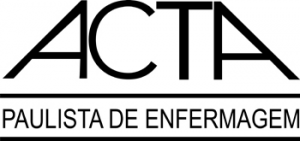Virginia Ramos dos Santos Souza, Professor, School of Nursing, Universidade Federal da Bahia, Salvador, Bahia, Brazil.
Maria Helena Palucci Marziale, Professor, School of Nursing at Ribeirão Preto, Universidade São Paulo, Ribeirão Preto, São Paulo, Brazil.
Gilberto Tadeu Reis da Silva, Professor, School of Nursing, Universidade Federal da Bahia, Salvador, Bahia, Brazil.
 In an unprecedented study available in the Acta Paulista de Enfermagem journal titled “Translation and validation into Brazilian Portuguese and assessment of the COREQ checklist”, researchers from the School of Nursing at the Universidade Federal da Bahia (UFBA) and the School of Nursing at Ribeirão Preto, Universidade de São Paulo (USP), with support from the CNPQ, the Bahia Research Support Foundation and UFBA, translated and validated the Consolidated Criteria for Reporting Qualitative Research (COREQ). They also proved the positive impact of its application for the development of qualitative studies submitted to scientific journals and published. This research is linked to the research project “Compliance with recommendations established by instruments (COREQ, STROBE and PRISMA) in articles published between 2015 – 2017”.
In an unprecedented study available in the Acta Paulista de Enfermagem journal titled “Translation and validation into Brazilian Portuguese and assessment of the COREQ checklist”, researchers from the School of Nursing at the Universidade Federal da Bahia (UFBA) and the School of Nursing at Ribeirão Preto, Universidade de São Paulo (USP), with support from the CNPQ, the Bahia Research Support Foundation and UFBA, translated and validated the Consolidated Criteria for Reporting Qualitative Research (COREQ). They also proved the positive impact of its application for the development of qualitative studies submitted to scientific journals and published. This research is linked to the research project “Compliance with recommendations established by instruments (COREQ, STROBE and PRISMA) in articles published between 2015 – 2017”.
COREQ was developed based on a wide-ranging review process and presents essential indicators for the planning, execution and reporting of qualitative research (Tong, Sainsbury, Craig, 2007). As this modality allows a deeper vision of reality and essence of the phenomena, it needs to be embodied in a carefully designed method and executed in a structured theoretical framework (Egry, 2020).
Qualitative methods are widely used in Nursing as strategies for investigating the phenomena related to the area, thus the adoption of instructional guides contributes to a better dissemination of scientific knowledge.
COREQ is an instrument made available by REDEQUATOR and consists of 32 items allocated in three domains: 1) Research team and reflexivity; 2) Study design; and 3) Analysis and findings. This guide is available on the REDEQUATOR website in English and does not have versions in other languages. We translated the COREQ checklist into Brazilian Portuguese with permission from Allison Tong and followed the methodological procedures recommended by the scientific community (Beaton, et al. 2007).
Editorial policies usually recommend the use of guides to improve the quality of texts for the development of articles that will be peer reviewed.
In this sense, we conducted a study evaluating the impact based on the analysis of the use of COREQ before and after its recommendation by the Nursing journal. This enabled a greater identification of the recommended items in published articles, proving the efficiency of this resource for the qualification of research reporting.
The translation of COREQ from English into Portuguese counted on the participation of a committee of experts and experienced researchers, who, after rounds of translation and back-translation, reached a high degree of content and semantic agreement. When checking the compliance with the 32 items in the guide, before the adoption of the guide, the global median was of 56.3% of items present and increased to 62.5% after its adoption, with statistical significance.
The use of COREQ supports researchers in the reporting of qualitative research with emphasis on items related to the research team, study methods, study context, results, analyzes and interpretations.
The Portuguese version resulting from this study will be made available on the REDEQUATOR website along with the original article of the guide.
References
BOMBARDIER, B. D. C. et al. Recommendations for the Cross-Cultural Adaptation of the DASH & QuickDASH Outcome Measures. Institute for Work & Health [online]. 2007 [viewed 08 April 2021]. Available from: https://www.researchgate.net/publication/265000941_Recommendations_for_the_Cross-Cultural_Adaptation_of_the_DASH_QuickDASH_Outcome_Measures_Contributors_to_this_Document
EGY, E. Y. O lugar do qualitativo na pesquisa em Enfermagem. Acta paul. enferm. [online]. 2020, vol.33, e-EDT20200002 [viewed 08 April 2021]. https://doi.org/10.37689/acta-ape/2020edt0002. Available from: http://ref.scielo.org/hfgyb8
TONG, A. et al. Consolidated criteria for reporting qualitative research (COREQ): a 32- item checklist for interviews and focus group. Int J Qual Heal Care [online]. 2007, vol. 19, no. 06, pp.349–57 [viewed 08 April 2021]. https://doi.org/10.1093/intqhc/mzm042. Available from: https://academic.oup.com/intqhc/article/19/6/349/1791966
To read the article, acess
SOUZA, V. R. S. et al. Translation and validation into Brazilian Portuguese and assessment of the COREQ checklist. Acta paul. enferm. [online]. 2021, vol.34, eAPE02631 [viewed 08 April 2021]. https://doi.org/10.37689/acta-ape/2021ao02631. Available from: http://ref.scielo.org/m4dzmr
External links
Acta Paulista de Enfermagem – APE: https://www.scielo.br/ape
Como citar este post [ISO 690/2010]:


















Recent Comments